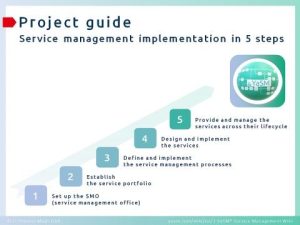
The IT sector still needs specialists
The IT sector still needs specialists, and programming is the most common choice for retraining. Even people who have never had anything to do with the new technology industry are making the attempt. High-end professionals, but also entry-level testers, have been particularly popular in the job market in recent months.
The coronavirus pandemic has forced many to redefine their career goals. Some sectors of the economy have been frozen. Some of them – such as tourism, catering or event industry – are still facing huge problems and, consequently, layoffs. The IT sector is resisting these changes. March data from the Bureau of Labor Statistics, a U.S. government agency, indicates that employment in the technology industry will grow by 11% over the next decade, adding about half a million new jobs in the U.S. by 2029. In Poland – according to the portal pracuj.pl – 40% of employed and as many as 65% of unemployed declare readiness for reorganization.
– Just before the outbreak of the pandemic I changed one event agency for another. Overnight, clients drifted away and my employer optimized costs. It’s clear that it wanted to be loyal to employees with longer tenure. I was left without a job, modest savings and a fair amount of time – recalls Katarzyna Bocianowska, today an IT software tester and adds: – It started innocently enough. I figured I could write, so I wanted to increase my competency by doing online courses in SEO. Then I started to take my first steps in CSS and HTML, watched more and more serious tutorials, and finally decided to sign up for a much more advanced tester course. Conducted online and this is how I work now – remotely. This also influenced the choice of. I no longer have to worry about sanitation restrictions and work where I am currently located, and my choice of employer is not limited to just one city.
Humanists want to code too
According to a report released in March by Red Hat, an international IT company, programming was the top choice for people looking to change jobs. Pan-European survey – Red Hat is also represented in Poland – conducted among more than 31,000. adults showed that 51% of those surveyed had acquired a new skill since the start of the COVID-19 pandemic, and coding was the most popular way to improve job prospects.
Red Hat data suggests that IT careers are increasingly in the minds of people who have not previously been involved in the digital technology sector in any way. As many as 79% of those surveyed had never worked in the IT sector, and 71% had no scientific or technical background or proven high mathematical skills. The main motivation associated with re-branding was the search for a new job that would offer stability and job security.
High wages, favourable taxation
After the initial turmoil in the IT sector, caused mainly by problems of contractors, the new technology industry has gone on the offensive caused by the new circumstances. People are largely forced to work or study from home. In contrast, many companies have realized that they need to accelerate their digital transformation. Therefore, the demand for tools that automate work, communication, cloud or cyber security solutions has increased significantly.
– The labor market has increased demand for highly skilled people who are immediately an added value for the company. The most sought-after specialists on the IT job market are Security, Big Data and DevOps specialists – explains Marek Czyżewski, CEO of Pravna.pl
High-quality IT specialists are in demand on the labor market, and this is reflected in salaries. According to the “IT Community Survey Report 2021”, prepared by the portal Bulldogjob – more than half of IT workers received raises in 2020. On the other hand, as many as 75% of respondents expect a salary increase in 2021. According to the analysis, people employed in specialized positions in IT can count on even 18 thousand. PLN when hiring in the form of B2B.
Earnings are also affected by the tax system. – Many programmers can take advantage of the so called. IP BOX relief. Those who increase the share of new technologies in Polish GDP through research and development. Innovative companies or sole proprietorships may account on the basis of the reference 5% CIT/PIT rate for income from qualified intellectual property rights – Marek Czyzewski describes. Qualified intellectual property rights can be m.in. copyrights to a computer program. – Our practice shows that in order to obtain a positive opinion, a proper argumentation is required and the whole process based on obtaining an interpretation takes about 3-4 months – adds CEO Pravna.pl
We are testing on a massive scale
The IT sector is one industry that hasn’t been flooded by a wave of layoffs, but according to the website nofluffjobs.com, as many as 77% of juniors in Poland had or are having trouble finding jobs in the industry. This is a worrying trend, which may have been influenced by the pandemic and the temporary suspension of junior recruitment. Heads of companies opted for safer solutions, i.e. accepting more experienced and verified employees. The transition to remote working has also had an impact on the lower employment of juniors, as mentors have found it more difficult to work with newcomers to the IT market and their assistance, especially in the first months of work, is often indispensable.
Data from the survey of Red Hat confirm that it is not only a Polish tendency. Of the new programmers 49% were working full time and 11% were still unemployed.
More reasons to be happy are testers who seek their first job in industries not directly related to programming. Demand for testers in the medical, financial and e-commerce sectors increased by more than 15%. As you can see, these are the industries that do best during a pandemic, e.g. because we do more and more shopping online or are more willing to use mobile banking. New technologies allow companies to regain stability and increase competitiveness, but before they release a new product (application), which will be their business card, testers must take care of it.


